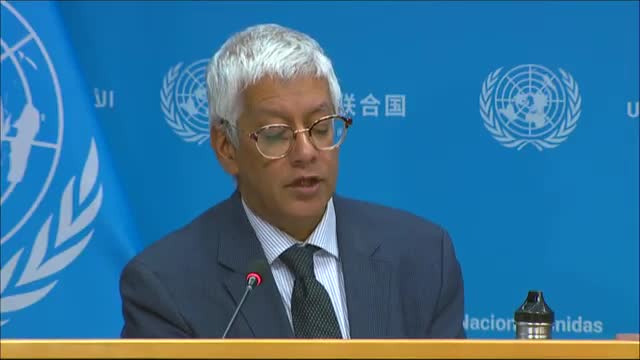UN says aid deliveries in Gaza limited by rejected consignments and lack of warehouse capacity
Get AI-powered insights, summaries, and transcripts
Subscribe
Summary
OCHA reported continued strikes near the yellow line, large internal displacement in Gaza since the ceasefire and distribution of multipurpose cash to more than 55,000 households. The UN said Israeli authorities have rejected requests to bring some relief items and that insufficient warehouse capacity inside Gaza hinders the 60‑day response plan.
The United Nations said its humanitarian partners are reaching people in Gaza where access allows, but that deliveries remain constrained by rejected consignments and limited warehouse capacity inside the enclave.
The Office for the Coordination of Humanitarian Affairs (OCHA) reported that more than 680,000 movements from southern to northern Gaza have been observed since the onset of the ceasefire, and nearly 113,000 movements from western to eastern Khan Yunis. Partners distributed multipurpose cash assistance to over 55,000 households since the ceasefire, up from about 40,000 in September; each household received roughly $378 in digital payments, according to the UN spokesperson.
The spokesperson said Israeli authorities have rejected 107 requests for the entry of relief materials since the ceasefire. Some items were rejected as falling outside the scope of humanitarian aid; others were classified as dual use. The UN listed examples of items restricted or contested by authorities, including vehicles and spare parts, solar panels, some types of mobile latrines, X‑ray machines and generators.
OCHA also warned that a lack of sufficient warehouse capacity inside Gaza is hindering the 60‑day response plan and complicating supply chains. The spokesperson explained this includes both limited storage space in the strip and restrictions on which organizations are authorized to bring certain relief items and the clearances needed for personnel and consignments.
Why it matters: The combination of rejected consignments and constrained storage inside Gaza reduces the ability of humanitarian partners to sustain and scale up assistance to hundreds of thousands of displaced people.
What the UN asked for: The spokesperson said the UN wants all humanitarian actors involved, with visas and clearances in place, and for impediments to be lifted so aid can flow and be stocked where it is needed.
